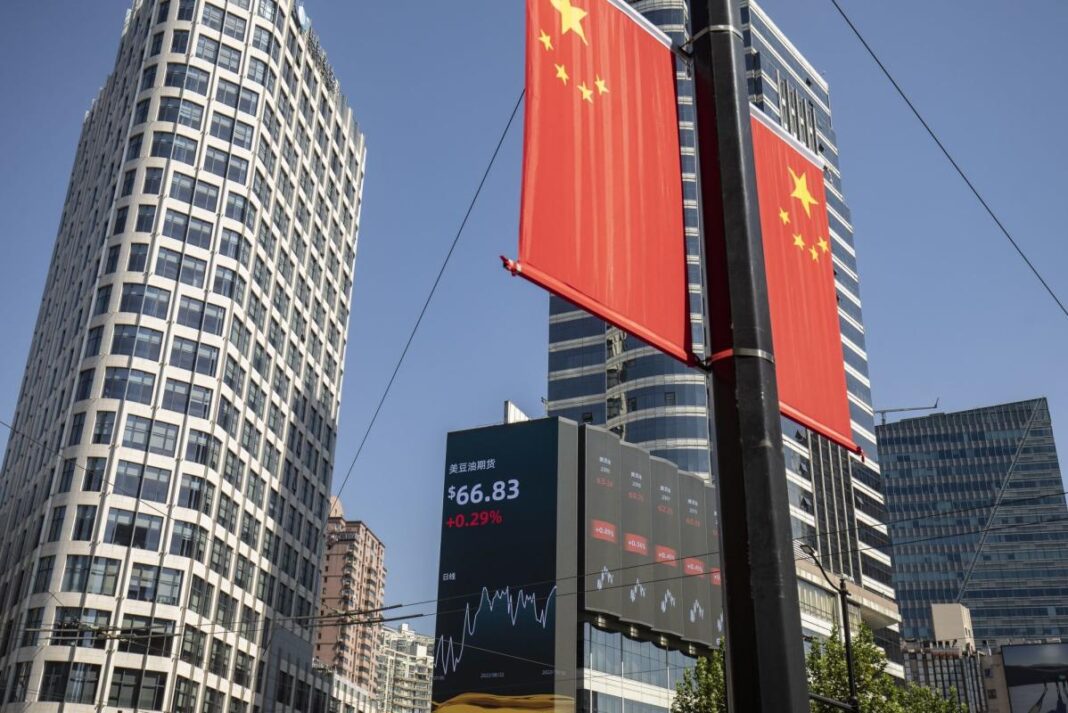(Bloomberg) — Chinese stocks traded in Hong Kong headed for their worst showing ever following a Communist Party Congress after this year’s leadership gathering dashed hopes for more market-friendly policies.
Most Read from Bloomberg
The Hang Seng China Enterprises Index slumped 4.3% as of 2:31 p.m. in Hong Kong. That took its losses for the week to over 9%, the most for any five-day period following a party meeting since the gauge’s inception in 1994. The index tumbled to the lowest since the 2008 global financial crisis in Monday’s historic rout and is on track for a fourth month of declines.
Traders are struggling to determine how long the rout will persist after a lack of supportive policies for the beaten-down property sector and the recommitment to the Covid Zero strategy at the congress left markets dismayed. To make things worse, fresh lockdowns are being imposed from Wuhan, coronavirus’s original epicenter, to China’s industrial belt on the east coast.
While sentiment seemed to somewhat stabilize in the last three days, the resumption of losses Friday has dented hopes for a sustainable rebound.
“The market is still in a downward trend” given the disappointment from the party congress, weak consumption, lackluster industrial profits and sporadic Covid outbreaks across the country, said Yan Kaiwen, an analyst with China Fortune Securities Co. Friday’s selloff is “mainly because of weak sentiment.”
The expiry of monthly futures and options contracts for the Hang Seng China gauge as well as a raft of earnings announcements boosted market volatility on Friday. Automaker BYD Co. and Industrial & Commercial Bank of China Ltd. — the world’s largest bank by assets — are among those due to report results.
At the twice-a-decade meeting last week, President Xi Jinping stacked the leadership ranks with allies, limiting the scope for opposition to his strategies. Confidence is running low particularly among international investors, who pulled a record $2.5 billion from mainland stocks on Monday alone.
The Hang Seng Tech Index lost as much as 6% on Friday. The top US official overseeing export controls said he expects a deal with global allies to limit shipments of chip-production equipment to China in the near term. Such a move — if achieved — will expand Washington’s efforts to keep cutting-edge semiconductor technology out of China and away from the country’s military.
On the mainland, China’s benchmark CSI 300 Index sank as much as 2.3% on Friday, taking its losses for the week to over 5%.
“The drop is just the extension from Monday as the market feels uncertain and unclear of economic prospects under the new leadership,” said Ryan Chan, associate director at Eddid Securities and Futures Ltd. “The relationship between the US and China is expected to get worse.”
READ: Xi’s $6 Trillion Rout Shows China Markets Serve the Party First
Still, with valuations at historic lows, market watchers are divided on the outlook. Morgan Stanley has slashed its targets for key Chinese equity gauges while JPMorgan Chase & Co. says the selloff is a buying opportunity.
“The recently concluded congress clearly” was the biggest factor weighing on the stock market in the past week, said Justin Tang, head of Asian research at United First Partners. “It will continue to be volatile unless we hear news to the contrary.”
–With assistance from Catherine Ngai and Chloe Lo.
Most Read from Bloomberg Businessweek
©2022 Bloomberg L.P.


